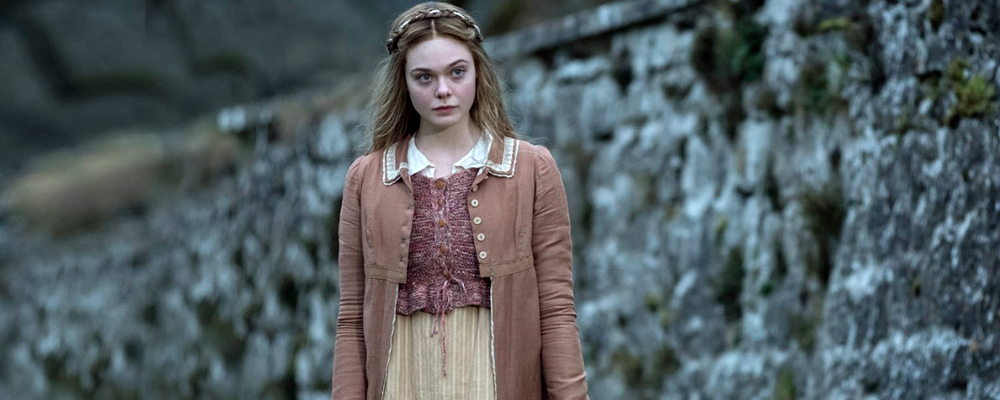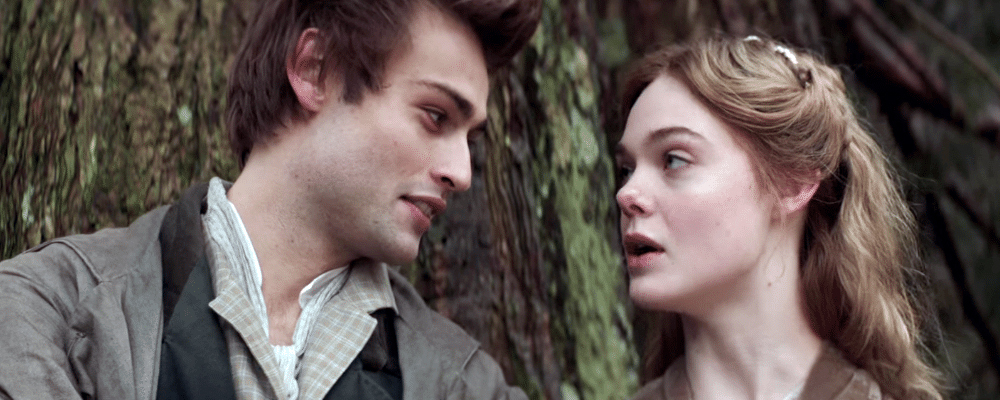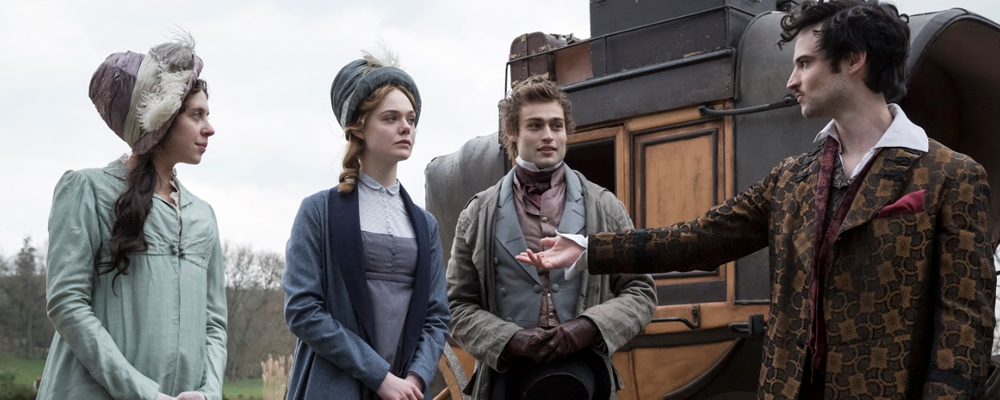Haifaa al-Mansoor’s ‘Mary Shelley’ Tells the Feminist Story of ‘Frankenstein’ Author
Aaron Berke
“Mary Shelley” is about both a woman and a monster. The monster’s story, “Frankenstein” is already known across the world, but far less people know about the woman who wrote the story. “Mary Shelley” explores the titular author, who’s radical personal life inspires her creation of Frankenstein. The film depicts Mary (Elle Fanning) as a young woman who is inspired by the success of her author father, William Godwin (Stephen Dillane) to be a writer herself. But Victorian era London was not a friendly time for women, and Mary’s road to publication is filled with twists and turns. Along the way she meets Percy Shelley (Douglas Booth) a young, accomplished poet who sweeps Mary off her feet.
Percy and Mary run away from her father’s home, accompanied by Mary’s fun-loving sister, Claire (Bel Powley). Percy and Mary’s unorthodox marriage drives much of the tension of the film. Percy espouses free love in marriage, a concept Mary is at first resistant to, but ultimately gets swept up in herself. Their whirlwind marriage becomes a roller coaster for the film and imbues it with a kind of energy rarely seen in a Victorian-era setting. In an interview with Entertainment Voice, director Haifaa al-Mansour talked about her reasons for focusing so much of her film on the marriage.
“[Mary’s] life is very prolific, it has so many things, and we really needed to be selective,” said al-Mansour. “We wanted to get the things that really inspired her to the write the book in [the film]. That was our blueprint. So that is why [we focused on] the relationship with Percy, because it’s the breakaway from home, it is the turning point for her to [move] from child to woman, and that was very important to capture.”
In another interview with Entertainment Voice, Douglas Booth talked about the unusually powerful relationship between Mary and Percy as being a strong factor in his desire to play the part of Percy. “You know I just thought it was a really interesting, complex relationship between two people who are madly in love, but they suffer at the hands of their ideals,” said Booth. “So, it was an interesting relationship and I thought it would be fun to do that with Elle.”
Some of the relationship’s most trying moments occur when Mary, Percy and Claire are whisked away to the mansion of Lord Byron (Tom Sturridge), a rich, eccentric bachelor who revels in unadulterated promiscuity. They’re stuck with Byron for months, and the risqué living style becomes a true test for Percy and Mary’s marriage. “They were so ahead of their time as a couple, advocating free love, all these sort of things,” noted Booth. “So that is why we recognized almost the sense of a modern couple in [Mary and Percy]. That was not ordinary in the time, so I think that’s what was so cool, they were behaving like people didn’t behave back then.”
The setting of Byron’s home is also crucial to the creation of “Frankenstein.” In a moment of boredom, Byron comes up with a writing contest, in which whoever writes the scariest story becomes the winner. As Mary mines her history for inspiration, the movie takes on a fascinating blend of genres, beginning to trade sweeping romance for the gothic horror traditional associated with “Frankenstein.”
Personal tragedy is a key factor in Mary’s conception of “Frankenstein.” Earlier in the film, Mary and Percy lose their first baby to a fatal sickness. This tragedy resurfaces when Mary falls asleep in Byron’s home. Her dream is the film’s purest moment of gothic horror, in which a macabre vision of the baby becomes a symbol for resurrection. This image morphs into Mary’s inspiration, fueling her creation of the Frankenstein monster.
Al-Mansour notes how tragedy is the single most important factor in Mary’s story, and the story of Frankenstein. “It was amazing how much [Mary’s] life is almost a mirror of whatever happens in the book,” al-Mansour reflected. “The loss of a child, the abandonment, her [tumultuous] relationship with her husband. It’s all boiled into [her] writing the book. [‘Frankenstein’] pushes the envelope and it creates a new genre and it is brave in its own way. And people don’t expect women to be that, especially young women.”
Early on, Mary’s father pinpoints a fiery spirit in her that can’t be quenched. Indeed, this spirt carries Mary through the course of the film. She survives the tragedy of her baby’s death, continues to fight for her marriage to Percy despite the constant temptation to leave, and refuses to give up on her passion to write. Al-Mansour believes that Mary’s story is a timeless example of the importance of feminism.
“[Mary Shelley] is a modern story. It is sad when women intellectually get dismissed. It’s really sad that it happened 200 years ago and it’s still happening now. And hopefully this is the end, now [that] a lot of people are recognizing women. There are a lot of social movements that are very aggressive. They all give [women] a platform to voice their opinion. So, I hope we are seeing the end of that [misogyny].”
By the end of “Mary Shelley,” it becomes the young author’s mission to get “Frankenstein” published at any cost. Perhaps the most impressive thing about the film is the dedication of its title character, and the burning passion of her spirit. The movie surges with often dizzying energy, bouncing in many directions as Mary’s radical marriage threatens to break her. But she stays strong through all of it, and never loses sight of her goals.
“I hope [viewers] will learn a little about the woman behind this great masterpiece,” said Booth. “That she was so young and that she had to really fight for the claim to get this book published. [I hope they] get to [understand] what she had to go through.”
Al-Mansour concurred, noting the importance of Mary’s singular dedication to her dreams. “Social pressure is very high on women to act in a certain way and be a certain way,” al-Mansour observed. “So, I hope that women find the passion they have in their heart and follow it. Sometimes it’s difficult for women, especially younger women, and I hope that this [movie] inspires them.”
“Mary Shelley” opens May 25 in select theaters, June 1 Nationwide and On Demand.



